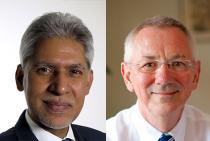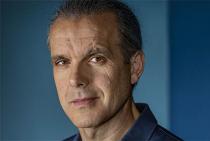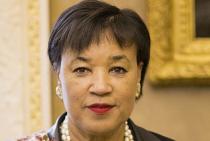The global ratification of the Biodiversity Beyond National Jurisdiction (BBNJ) Treaty marks a decisive moment in international cooperation and ocean governance. Referred to as the High Seas Treaty, the agreement establishes a legally binding framework to protect marine biodiversity in areas of the ocean that lie beyond national jurisdiction. By Mohseen Riaz-Ud-Dean and Ashna Kumar.
You are here
Results for Op-Ed World Environment
Monday 2 February 2026
Thursday 6 November 2025
Baku, Azerbaijan
The world arrives in Belém for COP30 at a moment of profound division. The international system is being tested in ways we have not seen in decades. Yet the climate crisis does not wait for stability. It touches every community on Earth. For small-island developing states, climate finance means coastal protection, food security, and survival. When I visited island nations from the Pacific to the Caribbean during our presidency, their moral leadership inspired the principle that guided our work in Baku; those who have contributed least to climate change should not face it alone. A crucial measure of success in Belém will be whether donor countries honour the promises they have already made. By Mukhtar Babayev, COP29 President.
Tuesday 23 September 2025
Berlin, Germany
A big test for the Paris agreement is taking place this week at the United Nations General Assembly, where all countries are to present their national climate plans, a process that ends in Belém, Brazil at the UN Climate Change Conference (COP30) later this year. Despite the depressing state of climate debates today, I am optimistic that the collective spirit built over the last decade is now quietly but deliberately working to consolidate and build upon the gains that have been made. The Paris agreement is one that all countries – whether fossil-fuel producers, island states, or the world’s wealthiest economies – negotiated and ratified in record time. It combines effective measurement and monitoring with flexibility for countries to determine and devise their own plans to confront climate change.
Monday 12 May 2025
Canberra, Australia
On 24 April 2025, the Trump administration issued Executive Order 14285 mandating federal agencies to expedite permits for seabed mining under the Deep Seabed Hard Mineral Resources Act of 1980. Trump wants to establish the United States as a global leader in seabed exploitation and loosen China’s grip on the critical minerals market. This helps explain why The Metals Company (TMC) recently announced plans to apply for seabed exploration and commercial recovery permits under this relatively old act. These developments could undermine international law, commitments to peaceful use of the Area Beyond National Jurisdiction and environmental protections. It could also sideline TMC’s Pacific partners. Nauru and Tonga are currently sponsoring TMC’s activities in the Area, but it’s not clear what it’s in it for them if TMC secures a permit for seabed mining under US law. By Nicholas Bainton and Philippa Louey
Friday 7 February 2025
Melbourne, Australia
Donald Trump has wasted no time clarifying what “America First” – the dominant idea driving his election campaign – means in practice. So far, it means a 90-day freeze on most foreign aid spending, as well as the withdrawal of the United States from the World Health Organization (WHO) and the Paris climate agreement. Of all the decisions made by Trump thus far, the most catastrophic are likely to be those related to climate change, including pushing for more oil and gas production. None of this will make America great again. On the contrary, Trump’s return to the White House has given a giant boost to China’s claims to world leadership. - Peter Singer
Tuesday 7 July 2020
Geneva, Switzerland
The world has been planning for the future in the mistaken belief that it will resemble the past. But as COVID-19 coincides with cyclones in South Asia and the Pacific and vast locust swarms in East Africa, the need to prepare for a world of unexpected shocks has become clearer than ever. Epidemics, floods, storms, droughts, and wildfires are all expected to become more frequent and severe, affecting hundreds of millions of people each year. By Jagan Chapagain and Andrew Steer
Monday 15 June 2020
Oslo, Norway
From Jamaica to Palau and Norway to Indonesia, the impact of the COVID-19 crisis is global, and national recovery efforts must be globally focused to seize shared opportunities. Nowhere is this more evident than in the global domain that unites us – the ocean. We now need to harness the potential of 70% of the planet to provide a “blue boost” to our economies, while building a more resilient and sustainable world. By Erna Solberg and Tommy Remengesau, Jr.
Friday 15 May 2020
Washington DC, USA
The Seychelles, a string of 115 verdant, rocky islands in the Indian Ocean, recently announced – in the midst of the coronavirus pandemic – that it would protect 30% of its glittering turquoise waters from commercial use - made possible through an innovative debt-swap deal – that will also bolster the health, wellbeing, and prosperity of the Seychellois, who number under 100,000 but cater to more than 350,000 visitors each year. - By Enric Sala
Friday 10 January 2020
Canberra, Australia
Owing to the smoke from nearby wildfires, Canberra this month has had the world’s worst air-quality index, with readings 20 times above the official hazardous threshold. The city also recently experienced its hottest day on record (111°F/44°C). Meanwhile, Delhi had its coldest December day on record. Both are evidence of growing climate volatility, confirming the reality of global warming. By Ramesh Thakur.
Thursday 14 November 2019
New York, USA
The US president is abandoning America’s future by quitting the Paris climate accord, says Ban Ki-moon former Secretary General of the United Nations and Patrick Verkooijen chief executive of the Global Center on Adaptation. In an article in the New York Times this week, they said it is not too late for Mr Trump to reconsider his decision. Staying in the Paris Agreement is the right thing to do, for America’s sake and for the rest of the world.
Monday 14 October 2019
Princeton, USA
“This is all wrong!” These words begin the most powerful four-minute speech I have ever heard. They were spoken by Greta Thunberg, the Swedish teenage climate activist, at the United Nations Climate Action Summit last month, and followed a week of climate strikes and marches attended by an estimated six million people. Can young people really wake the world to the urgency of changing direction? By Peter Singer
Friday 27 September 2019
Suva, Fiji
Geoengineering will save us from the climate crisis, its champions insist. By using technology either to remove carbon dioxide from the atmosphere or to deflect some solar radiation away from the Earth, they claim, we can undo the damage wrought by humanity’s failure to reduce greenhouse-gas (GHG) emissions. But while it certainly sounds like a convenient solution, there is no proof that it will work – and no telling what the side effects could be. In the view of Pacific islanders, it barely merits discussion. By François Martel.
Monday 12 August 2019
London, United Kingdom
On the eve of the 50th Pacific Islands Forum Meeting taking place in Tuvalu this week, the Commonwealth Secretary-General Patricia Scotland recognises the existential threat which climate change poses to Pacific Islanders. She calls on governments across the globe to urgently meet the terms of the Paris climate change agreement, if we are to save our Pacific Islands, as the rising sea levels could literally engulf thousands of islands in the region by 2100.
Tuesday 25 June 2019
Potsdam, Germany
The leaders of the G20 countries head to Osaka this week for their annual summit. United Nations Secretary-General António Guterres will address them before traveling to Abu Dhabi to finalize the arrangements for September’s UN Climate Action Summit. These meetings should set the world on course for the fastest economic transition in history. Yet both are likely to deliver incremental action, at best. By Johan Rockström
Monday 27 May 2019
Stockholm, Sweden
Earlier this month, a bleak global assessment of the shocking state of life on Earth made headlines worldwide. According to the report by the Intergovernmental Science-Policy Platform on Biodiversity and Ecosystem Services (IPBES), about 12% of all known animal and plant species are now threatened with extinction. Worse still, humanity is destroying entire habitats, and with them the web of life that supports societies and economies. Unsurprisingly, the findings were greeted with despair. By Ana Paula Aguiar, Odirilwe Selomane, and Pernilla Malmer.
Friday 10 May 2019
Brussels, Belgium
Since the massive mobilization effort that preceded the 2009 Conference of the Parties (COP15) in Copenhagen, the world has begun translating words and intentions into real action on climate change. European leadership – from government, civil society, and business – has played a pivotal role in driving progress. Given how much remains to be done, such leadership must continue – and become stronger.
Thursday 14 March 2019
Paris, France
On the Ides of March (March 15), the day by which ancient Romans were expected to settle their debts, young people in 60 countries around the world will stage a school walkout to press world leaders for more urgent action on climate change. It is a tragedy that younger generations are forced to speak out against the injustice they will suffer as a result of choices made by others; yet, at the same time, it is deeply reassuring to witness their power and passion as they try to change the course of history. By Éloi Laurent
Monday 11 March 2019
Berlin, Germany
We have long known that the accumulation of plastic in the world’s landfills and oceans represents a growing environmental risk. More recently, we have come to understand that plastic poses an urgent – even deadly – threat to public health, too. And yet, global efforts to address the plastic crisis remain consistently focused on the wrong end of the life cycle: waste management. The debate that will resume this month at the United Nations Environment Assembly (UNEA-4) is a case in point, because it will focus on “marine litter and microplastics.” By Lili Fuhr and Jane Patton.
Friday 28 December 2018
New York, USA
This month’s United Nations Climate Change Conference (COP24) in Katowice, Poland succeeded in producing a rulebook to implement the 2015 Paris climate agreement. Every UN member state signed on. But that will not be enough to head off climate catastrophe. It’s time to call in the engineers. When heads of state convene at the UN next September, the world’s leading engineers should greet them with a cutting-edge framework for global action. Energy transformation for climate safety is our twenty-first-century moonshot. By Jeffrey D. Sachs.
Tuesday 20 November 2018
Washington DC, USA
The Juliana v United States trial is about more than the environment; it will have far-reaching implications for intergenerational justice more broadly. Consider the issue of public debt. There have always been moral objections to one generation burdening the next with excessive debt, effectively limiting young people’s future liberty by impinging on their ability to form families, educate children, and create wealth. By Robert Dugger.























